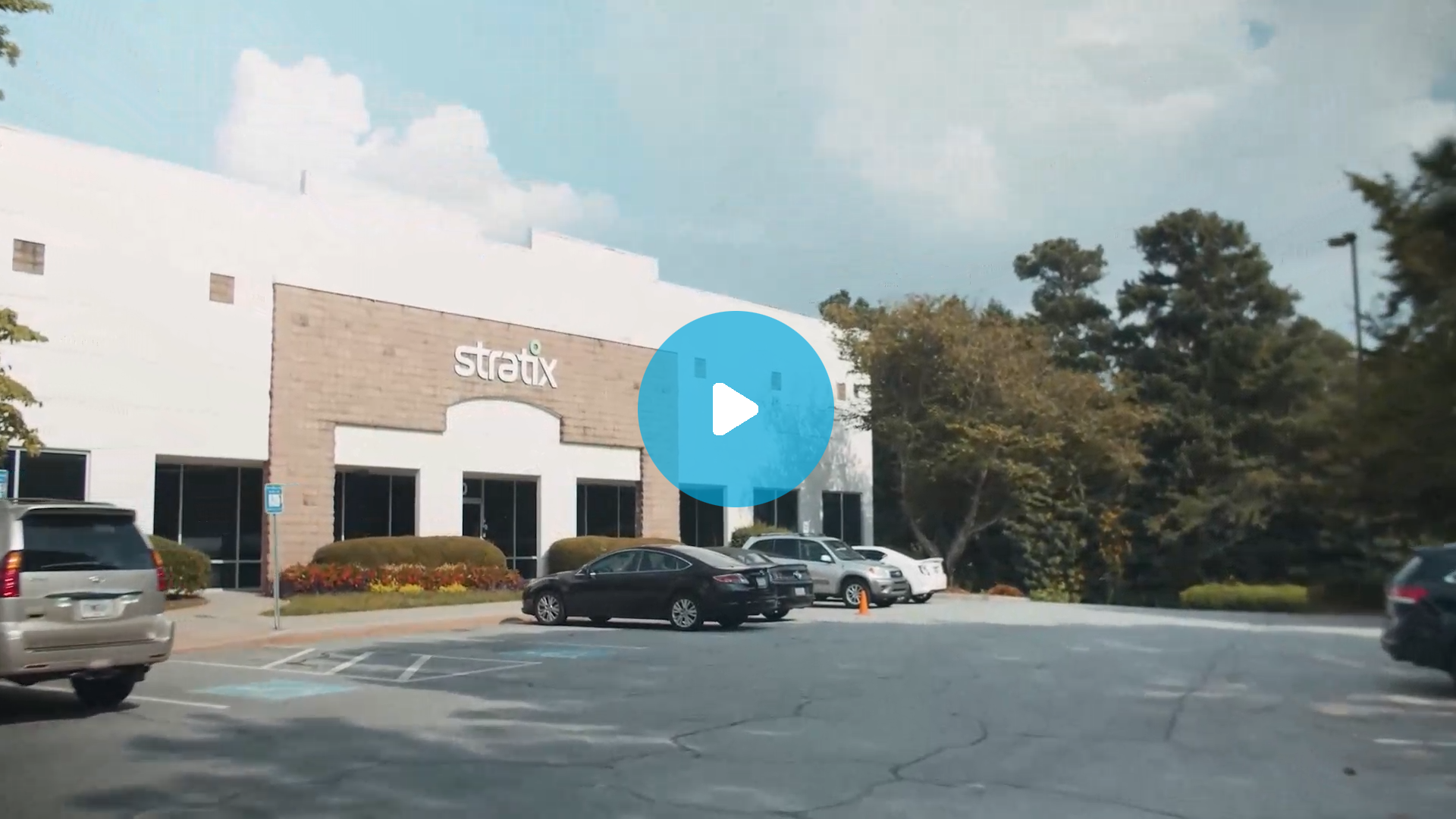How Mobile Technology is Driving Digital Transformation in Franchise Organizations
Written by Ian Slack
2 minute read
Blog
No matter what kind of franchise company you are—from cleaning services to quick-serve restaurants—mobile technology has become critical to streamlining workflows and giving customers the kinds of experiences they expect. In a recent episode of Stratix’s Enterprise Mobility Insights Podcast, Madeleine Zook, host of The Art of Franchise Marketing Podcast, said, “If you are not on board with digital, you are not on board with growth, and it’s going to hurt you and your franchisees in the long run.”
Challenges and Solutions in Implementing Mobile Technology in Franchises
In this episode, Madeleine Zook, franchise guru, breaks down the benefits and challenges of implementing mobile technology solutions across franchises.
Listen to Podcast EpisodeZook is an expert on the franchise business model. She and her husband are franchisees in four different brands with about 50 locations in the Philadelphia area. She works with franchise businesses to help build their brand, increase awareness, drive sales, and expand globally. We talked with her about what’s putting the emphasis on mobile for franchisors and why it’s so important.
Why Mobile and Why Now?
Franchise companies have used technology for decades, but it’s mostly been fixed. Examples include point of sale (POS) and kitchen display systems (KDS) with bump bars, etc. But Zook says mobile in your franchise IT strategy gives you the flexibility to be wherever people are because it’s so much more versatile. “It encourages franchisees and their customers themselves to utilize the brand, utilize the technology. It just makes for better productivity,” she explained. “You can streamline training, and you can even do things all the way down to running your whole business, inventory, managing billing, you know, things of that nature.”
But Zook says adopting mobile requires careful thought. Franchise IT solutions must deliver great user experiences to ensure high adoption rates. “Just because it’s mobile doesn’t mean people are going to enjoy using it. I think we all have those apps out there that have the potential to be great, and it just always falls short,” she said. “It’s just how do we adapt to this fast-paced world and implement the best solutions to make sure that we’re protected, we can deliver growing results.”
Is it Necessary to Use the Same Technology Platform Across All Franchisees?
As franchisors have launched new technology programs, they haven’t always required franchisees to use the same devices and apps. That can lead to different experiences for customers at various locations, which can impact the overall brand. “When it comes to technology that involves your customer experience, your finances, your inventory management, that’s something that you really want to be streamlined across your entire franchise,” said Zook. “You’re not doing yourself a service by having multiple operational software platforms for your franchise. That’s not why people bought into franchising.”
A single system also solves management challenges and visibility issues because data is not siloed in different systems. “On the operational front, you can see what’s working, what’s not, what glitches, what bugs and, and what has a great service score,” Zook explained. “My recommendation is always to have one singular across the franchise brand. That’s going to help you maintain your franchise operations, your brand governance, and really monitor stats to see who the better-performing franchisees are, who, who are not, and seeing those gaps in your service areas where you can improve. When it’s multiple platforms, that can be very difficult to do and also very difficult to manage.”
What Are the Franchise IT Challenges of Implementing Digital Transformation?
When it comes to implementing mobile technology solutions across franchise organizations, Zook says there can be resistance from franchisees, but it’s important to work through that challenge. Digital is where people are now, and organizations must adapt. “If you don’t, you will fall behind. That’s just the black and white of it,” Zook offered. “Typically, the best franchises out there are not quick service restaurants. They’re not made franchises. They are technology companies that supply a service. And those are the brands that do the best, that are well adopted, that can innovate well, that can flex.”
She explained that digital transformation doesn’t mean you’re changing the overall brand. What you’re doing is translating it into something that’s no longer pen and paper. “The long story short is if you are not on board with digital, you are not on board with growth, and it’s going to hurt you and your franchisees in the long run,” Zook said.
Not Going Digital Will Affect Long-Term Growth
Zook explained that companies always look forward to what’s next. How are they going to grow? “There’s only so far you can grow without digital. There is a ceiling, and a lot of franchisees will understand there is a glass ceiling. There is a threshold of revenue, and it can be very difficult to overcome that plateau at times,” she said. “The way you’re going to do it is with digital. So, I think being able to communicate that money and growth are attached to your digital presence—now more than ever. It is super important to please the customer through a digital customer experience.”
Zook says you can have the best franchise idea ever, but without digital, you’re going to get stuck. “It’s not enough to serve a great donut. It’s not enough to clean a house very well. Consumers expect a five to six to seven to 10-star service. It’s expected, so it’s no longer enough. So now if you’re just doing that and not also providing some support of what you’re doing on the backend, they’re going to go elsewhere … all of a sudden they’re going to a competitor that has, I can pay really fast, they always have stuff in stock, and there’s never a hang-up. Of course they’re going to go there instead of you.”
Zook explained that not being fully digital can quickly harm the brand. “Without this digital customer experience that you have to invest in, that you have to, you know, build out for your brand, your competitors are going to do that, and your customers are going to like them better,” she said.
The Bigger You Are, the More Important Digital Is
Zook says that as franchise organizations grow, they can’t scale properly without organization-wide digital solutions. “If you are a handyman with one location, it’s a lot easier to say, ‘I don’t need mobile. I’ll go in, and I’ll get on my desktop, and I’ll look at my Excel spreadsheet.’ Now, imagine being a franchisor that has 10,000 franchisees in 32 different countries. That’s simply not going to cut it.”
How Do You Work Through the Challenges
Zook says one of the best ways to get franchisees and employees on board with mobile is to show them it works. She gave an example of what happened in her cleaning service franchise. Because society is generally going cashless, employees weren’t getting good tips, and employee turnover was high. Moving to mobile devices where customers could use credit cards to tip changed everything. “We saw tipping increase like 300%, and then all of a sudden, our retention rates were better. Employee morale was better. So that’s just a really quick instance of how mobile can help in the simplest manner,” she said. Mobile technology also improves training, inventory management, and helps customers get in and out of a business faster. “The better your digital foundation is in the backend, the better your operational operations are going to run in the front end,” said Zook. “What we usually say is if there is a more streamlined way to do it, if there is a digital solution, we need to navigate that, we need to use it … at the end of the day, the best brands are utilizing digital for both strengths and weaknesses in their brand, but particularly weaknesses. Because the better you’re able to overcome those, you know, your brand only gets stronger.”
For more insights from Madeleine Zook, check out her Art of Franchise Marketing Podcast.














